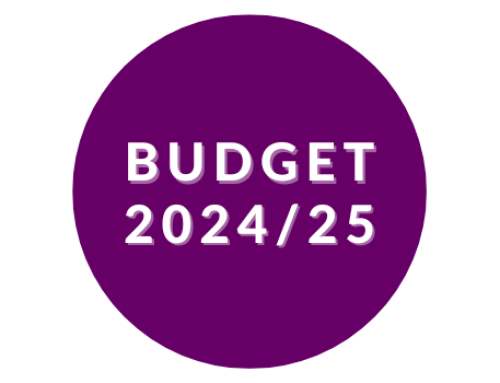Plans to eliminate food poverty, tackle obesity and reduce waste as well as making healthy, affordable and tasty food accessible for all are some of the key themes in the latest independent annual report from Croydon’s director of public health.
Rachel Flowers calls for a borough-wide ban on junk food advertising and more opportunities to better promote healthier foods and water, to reduce health inequalities and greatly improve the health and wellbeing of residents.
Published today, her report calls on the Government, Mayor of London and local businesses to adequately tackle food poverty and eliminate the need for food banks across the country by 2027. It also celebrates some of the council’s and their partners’ Food Smart initiatives in the borough that are successfully improving residents’ relationship with food, including supporting people to feed themselves and their families with nutritious meals to reduce holiday hunger.
A huge amount of work has taken place to tackle obesity within Croydon, such as recruiting Food Flagship schools, a borough-wide healthy weight partnership, working with fast food outlets to improve their food offer and becoming a Sugar Smart borough.
The food charity Sustain recently ranked Croydon second in London for tackling food poverty, this included recognition for receiving £600,000 for summer holiday clubs offering children healthy meals and snacks.
Croydon Council funds healthy cooking and food growing programmes in schools to teach more pupils to cook cheap and nutritious meals from scratch.
Rachel Flowers wants to see Croydon continue to build on these and other successes. She said: “Food is a complex four letter word and we all have a relationship with it, whether it be good, bad or a variation of these. This report covers a range of areas from weight and body perception through to sustainability. There is a fantastic food offer in Croydon, but it is shocking that food poverty exists in the 21st century and many residents cannot afford enough nutritious food for themselves and their family, while good food gets thrown away.”
“This means that all Croydon residents should have access to affordable, healthy and tasty food, regardless of where they live or how much they earn. I want the Government to develop a national food poverty strategy to eliminate the need for food banks by 2027. My report provides a real opportunity to do more to end the need for these interventions in our society today, or in the future.”
A strongly implemented programme to reduce food waste through improved recycling is also urged to decrease food and packaging waste by 25% by 2025. An example of local good practice is the Food Cycle Norwood Junction Project, which serves tasty meals for people in need to prevent food waste. Many lunch clubs in the borough obtain donated food from local suppliers.
The report has a series of recommendations for the Government, business and residents to reduce health inequalities. Her top recommendations, include:
• A national food poverty strategy to eliminate the need for food banks across the country by 2027.
• No food banks needed in London by 2024.
• Mandatory food labelling at the front of packaging.
• Compulsory nutrition and weight management training in the borough’s 64 GP practices and all departments in Croydon Health Services.
• All fast food outlets sign up to the council’s Eat Well Croydon scheme and provide more healthy food to customers.
• Residents should ditch the large dinner plate and try using a nine inch plate for their main meal.
Councillor Tony Newman, leader of Croydon Council, said: “Croydon is a wonderfully diverse borough and there is much to celebrate around our food culture. However, we cannot ignore the fact that food poverty and health inequalities affect many residents. We support Rachel Flowers’ recommendations, which we hope will make an impact in reducing the need for food banks, food insecurity and ensuring better access to healthy food for all.”
Councillor Jane Avis, Croydon Council’s cabinet member for families, health and social care, said: “We are supporting residents, from young children to much older people, to be healthier by helping them to access healthy food, manage their weight and enjoy cooking with fresh produce on a budget. This report will be beneficial to the council’s future plans in this area. It also includes some helpful information for residents like the health benefits of portion control by reducing the size of your dinner plate.”
The full report is available here.






























